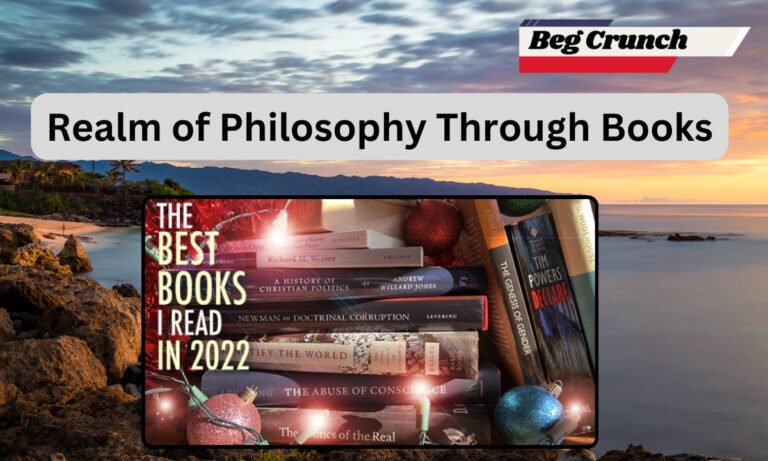Books About Buddhism
Buddhism, a profound and ancient spiritual tradition, offers a wealth of teachings and insights into the nature of existence, suffering, and the path to enlightenment. Whether you’re a curious beginner or a dedicated practitioner, there are numerous enlightening books available that delve into the core principles and practices of Buddhism. In this comprehensive guide, we’ll explore a selection of highly recommended books about Buddhism, catering to individuals at various stages of their spiritual journey.
Introduction to Buddhism
Buddhism Plain and Simple by Steve Hagen
Steve Hagen’s book is an accessible introduction to the core concepts of Buddhism. Written in clear and straightforward language, the book explores fundamental Buddhist teachings, such as the Four Noble Truths and the Eightfold Path. Hagen’s approach invites readers to contemplate the practical implications of these teachings in their daily lives.
Thich Nhat Hanh’s The Heart of the Buddha’s Teaching
Thich Nhat Hanh, a revered Buddhist monk and teacher, offers profound insights into the essence of Buddhism in this book. He explores key concepts, including interdependence, mindfulness, and the nature of suffering. Thich Nhat Hanh’s ability to convey complex teachings in simple terms makes this book a valuable resource for both newcomers and seasoned practitioners.
Exploring Buddhist Philosophy
“The Miracle of Mindfulness” by Thich Nhat Hanh: Nurturing Inner Tranquility Through Present-Moment Awareness
Nestled within the intricate tapestry of Buddhist philosophy, “The Miracle of Mindfulness” authored by the esteemed Thich Nhat Hanh transcends the confines of conventional literature. Beyond a mere exploration, the book serves as a transformative guide on the path of mindfulness, unraveling the potential of each present moment and fostering profound insights that reverberate through one’s inner being.
At its core, Thich Nhat Hanh’s magnum opus isn’t just a theoretical discourse; it’s an experiential journey into the heart of mindfulness. With the finesse of a Zen master, he demystifies mindfulness as a practice that transcends the meditation cushion, inviting us to infuse every breath and step with unwavering awareness. The book is a compendium of practical exercises, seamlessly incorporating mindfulness into daily routines—a gentle reminder that the mundane holds the seeds of the extraordinary.
The brilliance of “The Miracle of Mindfulness” lies in Thich Nhat Hanh’s art of communication. His words resonate not as dictations, but as an intimate conversation—a dialogue urging us to explore our consciousness. With a skillful blend of anecdotes and teachings, he navigates the reader through the profound connection between mindfulness, emotions, and self-discovery. Whether it’s savoring a cup of tea or engaging in conversations, the book underscores the potential to infuse intentionality into each interaction.
“The Three Pillars of Zen” by Philip Kapleau: Embarking on a Profound Odyssey of Zen Enlightenment
Within the realm of Zen Buddhism—a path synonymous with direct experience and profound awakening—Philip Kapleau’s “The Three Pillars of Zen” stands as a cornerstone. A timeless testament to Zen philosophy, meditation, and the challenges entailed in the journey to enlightenment, Kapleau’s work delves into the intricacies of Zen with unparalleled depth.
Zen Buddhism, rooted in the ethos of direct experience, beckons seekers to transcend intellectual abstractions.
Kapleau’s masterpiece embodies this essence. With the precision of a skilled navigator, he elucidates the three pillars—teaching, practice, and enlightenment—interwoven threads that define Zen. The teachings, often transmitted in sacred encounters, lay the groundwork for practice, and practice, in turn, becomes the crucible for enlightenment.
The book isn’t a mere observer of Zen; it’s an immersive experience. Through a tapestry of master-disciple dialogues and spontaneous awakenings, Kapleau invites readers to taste the potential within. These narratives function as compasses, guiding us through the intricacies of the teacher-student relationship—an unspoken transfer of wisdom that transcends words.
Meditation and Mindfulness
Radical Acceptance by Tara Brach
Tara Brach, a renowned meditation teacher and psychologist, offers a compassionate approach to mindfulness in this book. She combines Buddhist wisdom with psychological insights to guide readers toward self-acceptance and healing. Brach’s teachings emphasize embracing all aspects of oneself and finding freedom through mindfulness.
Thich Nhat Hanh’s The Miracle of Mindfulness
As mentioned earlier, Thich Nhat Hanh’s book The Miracle of Mindfulness is a cornerstone of mindfulness practice within Buddhism. Its teachings on staying present and cultivating awareness make it relevant in multiple aspects of a practitioner’s journey.
Buddhist Ethics and Wisdom
The Art of Happiness by Dalai Lama
The Dalai Lama, the spiritual leader of Tibetan Buddhism, collaborates with psychiatrist Howard Cutler in this book to explore the concept of happiness from a Buddhist perspective. The book delves into the intersection of Buddhist wisdom and modern psychology, offering practical advice for finding lasting happiness.
Cutting Through Spiritual Materialism by Chögyam Trungpa
Chögyam Trungpa’s book is a thought-provoking exploration of spiritual materialism, the tendency to use spiritual practices for self-centered purposes. Trungpa, a Tibetan Buddhist teacher, challenges readers to examine their motivations on the spiritual path and to embrace genuine humility and compassion.
FAQs
What are the Four Noble Truths?
The Four Noble Truths are foundational teachings in Buddhism. They articulate the nature of suffering (dukkha), its origin, its cessation, and the path leading to its cessation. These truths provide a framework for understanding the nature of human existence and the path to liberation.
How does meditation contribute to the practice of Buddhism?
Meditation is a central practice in Buddhism, serving as a tool for developing mindfulness, concentration, and insight. Through meditation, practitioners cultivate awareness, gain a deeper understanding of their minds, and work towards transcending suffering and attaining enlightenment.
Is Buddhism a religion or a philosophy?
Buddhism can be viewed as both a religion and a philosophy. It encompasses spiritual beliefs, rituals, and a code of ethics, which align with the definition of a religion. Simultaneously, Buddhism offers profound philosophical teachings on the nature of reality, suffering, and the path to awakening, making it a comprehensive philosophical system.
Conclusion
The world of Buddhism offers a rich tapestry of teachings and practices that cater to individuals seeking spiritual growth, self-discovery, and inner peace. These recommended books provide a diverse array of perspectives, from introductory concepts to advanced philosophy and meditation techniques. By immersing yourself in these texts, you can embark on a transformative journey that aligns with the profound wisdom of Buddhism.







